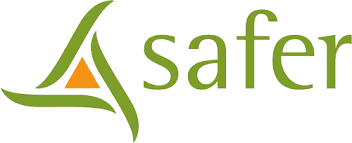
Your plans to buy your farm or wine estate are progressing well. You're about to sign the preliminary sales agreement, but you've been told that the SAFER is going to pre-empt and prevent your project from going ahead. But don't panic! The risk is not that great and you undoubtedly have solutions to put in place.
Let's start again from the beginning to understand how the right of pre-emption and the SAFER work.
The right of pre-emption is a right granted to a body, usually a public body, to purchase a property (to take the place of) the purchaser initially provided for in the contract. For example, local authorities very often have a right of pre-emption over property sales, which enables them to control transactions in their areas.
The purpose of this right of pre-emption is therefore to implement a public policy and to control private transactions, at least in part.

SAFER (Société d'Aménagement Foncier et d'Etablissement Rural) is a private body with a public service mission by law. SAFER is organised into companies in each French region.
Under article L141-1 of the French Rural and Maritime Fishing Code, SAFER has 4 missions:
To carry out its missions, it has been equipped with legal tools, including the right of pre-emption. This was granted to avoid speculation on agricultural land and to limit the price of farmland.
This right applies only to agricultural property: land, agricultural buildings, houses in agricultural areas, etc.
For more details, please consult the presentation produced by SAFER itself.
When a provisional sale agreement is signed for agricultural property, the notary will send a notification to SAFER setting out the terms of the sale: the seller, the buyer, the description of the property sold, the sale price, etc.
The SAFER then has 2 months in which to act. If nothing has happened by the end of the 2 months, this means that SAFER is not pre-empting the property.
During these 2 months, SAFER will examine the application. It forwards it to the local land adviser, who examines the proposed sale, looks at the prices charged in relation to usual practice, considers whether other buyers might be interested, whether they have priority, and contacts them .... After examination, if the advisor is considering pre-empting, he will submit the file to a Technical Committee, which will then decide whether or not to pre-empt.
It should be noted that SAFER also has a similar right on sales of woodland and forests in the Ile-de-France region.
Yes, when SAFER pre-empts a property, it does not do so against a candidate but to favour another priority candidate.
One of SAFER's missions is to promote the installation of young farmers and the transfer of farms.
The order of priority is defined by law and by regional regulations. In fact, each region draws up a Schéma Directeur des Régional des Exploitations Agricoles. It is this document that determines the priorities for the Control of Structures. The SAFER pre-empts if it considers that a priority buyer should purchase the property rather than another.

Once the SAFER has notified the notary of its decision to pre-empt, it will then look for candidates to allocate the property. The property is officially advertised. Anyone who is interested can apply by completing an application form.
The land technician in charge of the file will then summarise the applications, review the financing arrangements and forward the file to the Technical Committee, which will give its opinion on the handover. This decision is then forwarded to the Board of Directors, which makes the official decision.
The Government Commissioners, representatives of the State, then validate the decisions taken by the Board of Directors. The Government Commissioners are representatives of the Ministries of Agriculture and Finance.
It should be noted that once the seller has been notified of the pre-emption decision, he cannot withdraw his property from the sale. He is then obliged to continue with the sale, but to the benefit of the SAFER.
Yes, pre-emptive and retro-sale decisions are administrative decisions that can be appealed in court and are liable to be overturned.
There have been many cases of litigation against SAFER decisions, with both favourable and unfavourable outcomes.
SAFER's Technical Committee is made up of representatives of various organisations represented in 3 different colleges:
Agricultural organisations: Chamber of Agriculture, representative agricultural unions (FDSEA, Jeunes Agriculteurs, Confédération Paysanne, Coordination Rurale, etc.), banks and mutual insurers, etc.
Public authorities: regional and departmental councils, mayors' associations, etc.
Others: Agence de service de Paiement, environmental protection associations, land and forest owners' unions, chamber of notaries, etc.
The presence of agricultural representatives within SAFER means that land technicians have an important relay of information in the countryside.
When SAFER considers that a transfer is being made at an abnormally high price in relation to the market price, it may decide to pre-empt with a price revision.
In practice, it notifies the notary that it wishes to exercise its right, but at a lower price than that provided for in the preliminary sales agreement. It must justify its decision by proving that the proposed price is higher than average values.
However, it cannot impose this price on the seller. The seller then has 6 months in which to make his decision. He has 2 options:
SAFER was designated by the Loi Sempastous to exercise the control provided for by the Loi Sempastous and aimed at combating the grabbing of agricultural land through partial transfers of agricultural companies.
The SAFER receives virtually no subsidies and is remunerated by fees that increase the purchase price for the beneficiary of the retrocession.
However, to avoid raising the bill too much, transactions carried out by SAFERs are exempt from registration fees. The cost of the SAFER's intervention is therefore covered at least in part by savings on acquisition costs.
According to SAFER figures, in 2020 SAFER carried out 1,240 pre-emptions, i.e. only 0.4% of the 322,400 proposed sales notified to it! So the risk of a pre-emption is actually very low.
If you are buying a farm, equestrian property, wine estate, etc. that includes buildings, land, a house, etc., the risk of pre-emption is low because SAFER will have great difficulty finding a competing buyer with priority.
If your purchase involves only a few hectares of land, the risk of pre-emption will be greater because many neighbouring farmers are likely to be interested in these plots.
One of the ways of avoiding pre-emption by the SAFER is to anticipate and therefore to know the local context. Contact the SAFER, introduce yourself and explain your project. The local technician may be able to show you how to set up your project and gain a place in the order of priorities.
In fact, it is often the SAFER land technician who contacts the buyer or seller of a property even before notification to inform them that they are considering a pre-emption on the case.
You can also contact potential local competitors and try to reach an agreement to prevent them from applying.
If a project eludes you, you will very probably have new opportunities to acquire agricultural property in the months and years to come. Many farmers will be going out of business in the next few years, freeing up a large number of farms and plots of land.
You now have a real understanding of what the SAFER is and of its right of pre-emption, and therefore the keys to making the right decisions as part of your purchase project. Don't hesitate to consult our other articles on buying a farm.